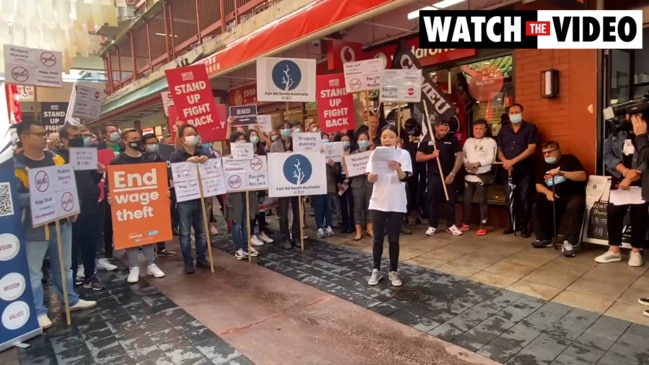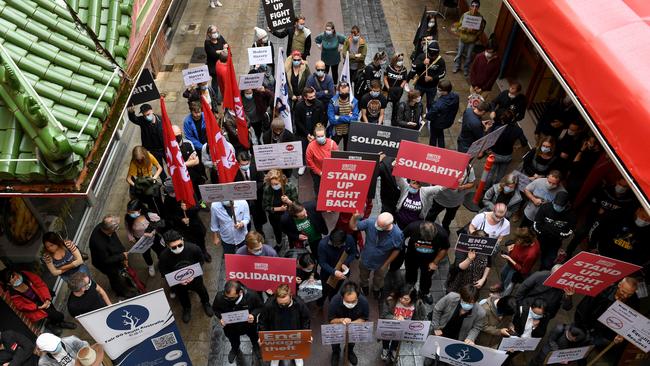SA government urged to tackle wage theft in McKell Institute’s submission to senate inquiry
The rate of casualisation will rise and wage theft will continue under “weak” laws proposed by the federal government, according to a leading policy maker.

SA News
Don't miss out on the headlines from SA News. Followed categories will be added to My News.
Sweeping reforms to industrial relations in Australia would harm SA’s highly casualised workforce and do little to stop wage theft, a leading research institute says.
The McKell Institute argues that a wide-ranging employment bill currently before federal parliament would disproportionately affect SA, which has the second-highest rate of casual workers in the country.
In a broad submission to a senate inquiry, McKell Institute policy director Edward Cavanough also said SA should implement stronger laws that thwart wage theft in the state to make up for the Federal Government’s “weak” bill.
But, Treasurer Rob Lucas said the State Government no longer had authority in private sector industrial relations and that it was a “national issue”.

The reforms, introduced by Attorney-General Christian Porter, seek to introduce a new definition of a “casual” worker – being someone who accepts work “where there is no firm advance commitment to continuing and indefinite work”.
The proposal was questioned by some key crossbenchers, including SA senator Rex Patrick, while the entire Bill was opposed by the Opposition.
In his submission, Mr Cavanough said the bill would “risk expanding casualisation” in SA, which was already at 25.3 per cent.
“Though casual forms of work can be beneficial to certain individuals, the reality is that tens of thousands of workers in SA have little agency in determining whether their employment will be casual or not.”

Mr Cavanough, who is due to testify before the senate inquiry in Adelaide on Wednesday, worked with the McKell Institute to lift the lid on widespread underpayment and mistreatment of workers in NSW’s blueberry industry.
The Bill would give casual workers the right to convert to permanent employment after 12 months if they worked a regular pattern of hours for the previous six months.
Unless there are “reasonable grounds” otherwise, the employer must make a written offer within 21 days after the worker has completed 12 months of employment – but Mr Cavanough said it was vague what would happen if no offer was made in the time period.
The proposed bill would include wage theft penalties of up to four years’ jail for those found dishonestly underpaying staff.
“The criminal sanctions are a step in the right direction, but they are far weaker than what we’ve seen in Victoria and in Queensland,” Mr Cavanough said.
“My concern is SA workers will be more exposed than some of these other states that already have laws on the book.”
Mr Lucas said: “We are urging the Labor Party to support Christian Porter’s legislation … which elevates for the first time dishonest underpayment of wages to a criminal offence”.





